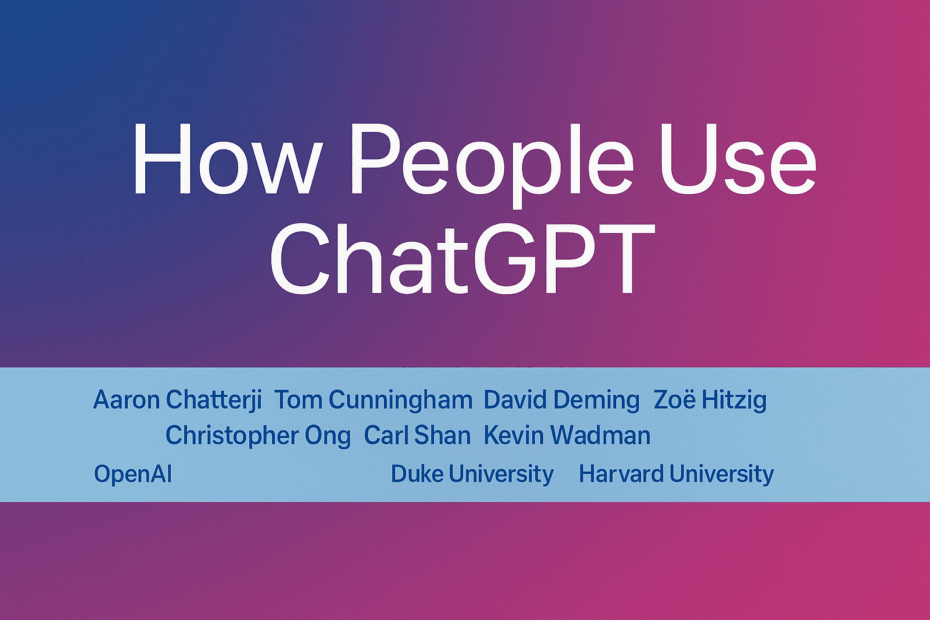At Veritopa, we’ve always believed that generative AI is more than a workplace tool—it’s reshaping how people think, learn, and create. A new economics paper, How People Use ChatGPT (Chatterji, Cunningham, Deming, Hitzig, Ong, Shan, Wadman – OpenAI, Duke, Harvard), validates this belief with the first large-scale, data-driven analysis of ChatGPT’s usage across the globe.
The Scale of Adoption
By July 2025, ChatGPT had reached 700 million weekly active users, roughly 10% of the world’s adult population. That’s faster than almost any technology in history. More than 2.5 billion messages are exchanged daily—about 29,000 every second.
Work vs. Life
One of the most surprising findings: 70% of ChatGPT messages are not work-related. While early conversations centered on productivity, the dominant uses now extend into learning, creativity, problem-solving, and everyday decision-making. In other words, people are turning to AI for life, not just for work.
What People Are Actually Doing
The research identifies three dominant use cases that together account for nearly 80% of all interactions:
- Practical Guidance – tutoring, coaching, how-to advice, creative ideation
- Seeking Information – fact-finding, product research, recipes, current events
- Writing – drafting, editing, translating, summarizing, critiquing
For professionals, writing is the biggest work use case, making up 42% of work-related interactions. Interestingly, two-thirds of these are about improving existing text rather than generating from scratch—showing how AI is becoming a collaborative editor, not just a blank-page writer.
Who Uses ChatGPT?
- The gender gap is closing – usage started heavily male but has now shifted to near parity.
- Youth lead adoption – nearly half of all messages come from users under 26.
- Global growth is strongest in emerging markets – low- and middle-income countries are adopting ChatGPT at the fastest pace.
- Professionals turn to AI for decision support – those in knowledge-intensive jobs rely on ChatGPT to make better, faster decisions.
Why This Matters for Business
The report reinforces what we see at Veritopa: the economic value of generative AI lies in decision support. AI isn’t just about automating tasks—it’s about augmenting human judgment. Whether drafting strategies, making hiring decisions, or advising clients, professionals are leveraging ChatGPT as a co-pilot that improves clarity, speed, and confidence.
The Big Picture
Generative AI is no longer a niche productivity tool. It’s a global utility for information, guidance, and expression—as essential to daily life as search engines once became. For organizations, the challenge isn’t whether to adopt AI—it’s how to structure it for maximum impact while preserving trust and context.
At Veritopa, we help enterprises move beyond experimentation toward semantic structuring of knowledge, AI governance, and context-rich solutions that scale. Reports like this underscore that the future of work—and life—will be defined by how well we harness AI for better decisions.
👉 [Listen to podcast summary] ->
